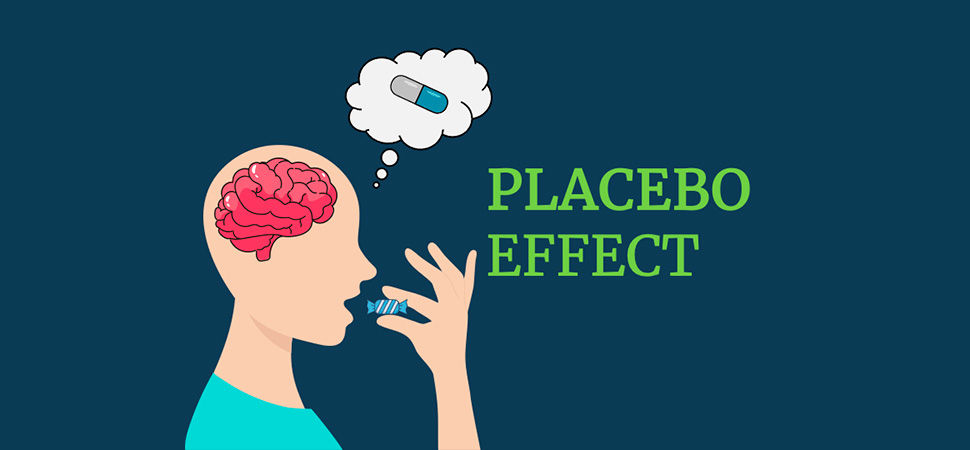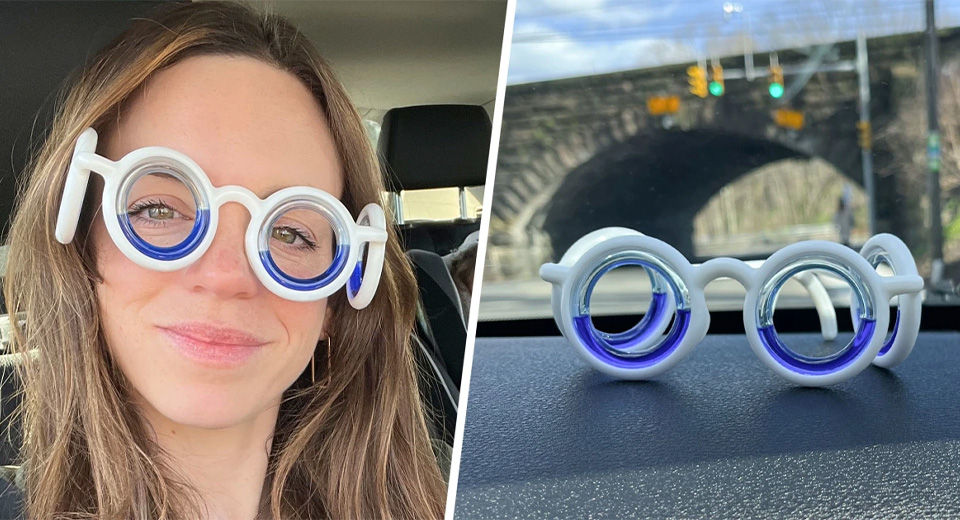Understanding Motion Sickness

Before we know how these motion sickness glasses work, it is important to understand what causes motion sickness in the first place. It occurs when there is a difference between what the eyes perceive and what the inner ear, which is responsible for balance, detects.
This sensory disparity confuses the brain, which leads to symptoms such as vomiting, nausea, and dizziness. It commonly occurs during travel, particularly when the motion you experience is erratic or unpredictable, such as in cars, cruise ships journey, or amusement park rides.
How Do Motion Sickness Glasses Work?

Motion sickness glasses, which are also known as "seasickness glasses" or "anti-motion sickness glasses," use both visual and balance senses to help reduce the symptoms caused during travel. They usually use rings or frames filled with blue liquid that looks like the horizon line.
The theory behind their function is that they provide a stable visual reference point, which helps to synchronize the signals received by the eyes and inner ear and reduces the sensory conflict responsible for motion sickness.
Are These Glasses Effective?

While the concept behind these glasses seems plausible, their effectiveness varies from person to person. Several studies were performed to investigate their efficacy, and the results from those studies were a mix of positive, negative, and neutral. It is the same as any other solution would work, even these glasses vary from person to person.
Some users experienced significant relief from symptoms when using these glasses, praising their ability to restore a sense of stability during travel. However, others experience minimal to no improvement, indicating that individual differences and specific motion sickness triggers may influence their effectiveness.
Personal Experiences

To truly understand the impact of motion sickness glasses, it's essential to hear from those who have firsthand experience with them. Sarah, an avid traveler, recounts her journey using them during a recent boat trip. She said she has always struggled with motion sickness, especially on the water, but wearing these glasses made a noticeable difference. She added that she felt more grounded and experienced fewer symptoms than usual.
Conversely, James shares a different perspective. He says that he was hopeful that these glasses would be the solution he had been searching for. Further, he says that despite wearing them during a long car ride, he didn't notice any significant improvement. It was disappointing, to say the least. So here we can see how the effects of these glasses were different from person to person.
Influencing Factors

Several factors may influence the effects of these glasses, including individual vulnerability to motion sickness, the intensity and type of motion experienced, and the fit and design of the glasses themselves. Additionally, some experts suggest that the placebo effect may contribute to perceived benefits, highlighting the complex interplay between psychology and physiology in mitigating motion sickness symptoms.
Motion sickness glasses offer a promising but subtle approach to managing motion sickness symptoms. While some individuals may find significant relief and swear by their effectiveness, others may experience minimal benefits or none at all. As with any intervention, it's essential to approach this solution with a balanced perspective, recognizing that while they may offer relief for some, they may not be a solution for all.
The Placebo Effect

The placebo effect is a well-documented phenomenon whereby individuals experience symptom relief because they believe in a treatment's efficacy, which may play a role in the perceived effectiveness of the glasses. The studies conducted have shown that just simply wearing a device or accessory purported to alleviate symptoms can lead to a reduction in discomfort, even in the absence of any physiological changes.
The placebo effect underscores the profound influence of mind-body interactions on our experiences of discomfort and relief. While it may not directly address the underlying physiological mechanisms of motion sickness, the placebo effect can nonetheless exert a powerful influence on our perception of symptoms, highlighting the intricate interplay between psychology, expectation, and physiological response in shaping our subjective experiences.
Ultimately, while motion sick glasses may not offer a universal solution, their potential to provide relief, coupled with the complex interplay of individual factors and the placebo effect, underscores the multifaceted nature of motion sickness management. Further research is warranted to explain their mechanisms of action and identify sub-populations most likely to benefit from their use.
Through the personal anecdotes and scientific insights shared in this exploration, we hope to shed light on the nuanced nature of motion sickness and the role that motion sickness glasses play in navigating its turbulent waters. As technology advances and our understanding of motion sickness deepens, continued research holds promise for refining existing interventions and uncovering new strategies to alleviate this common ailment, ensuring smoother travel journeys worldwide.









.jpg?updatedAt=1735200955338)
.jpg?updatedAt=1735197007532)